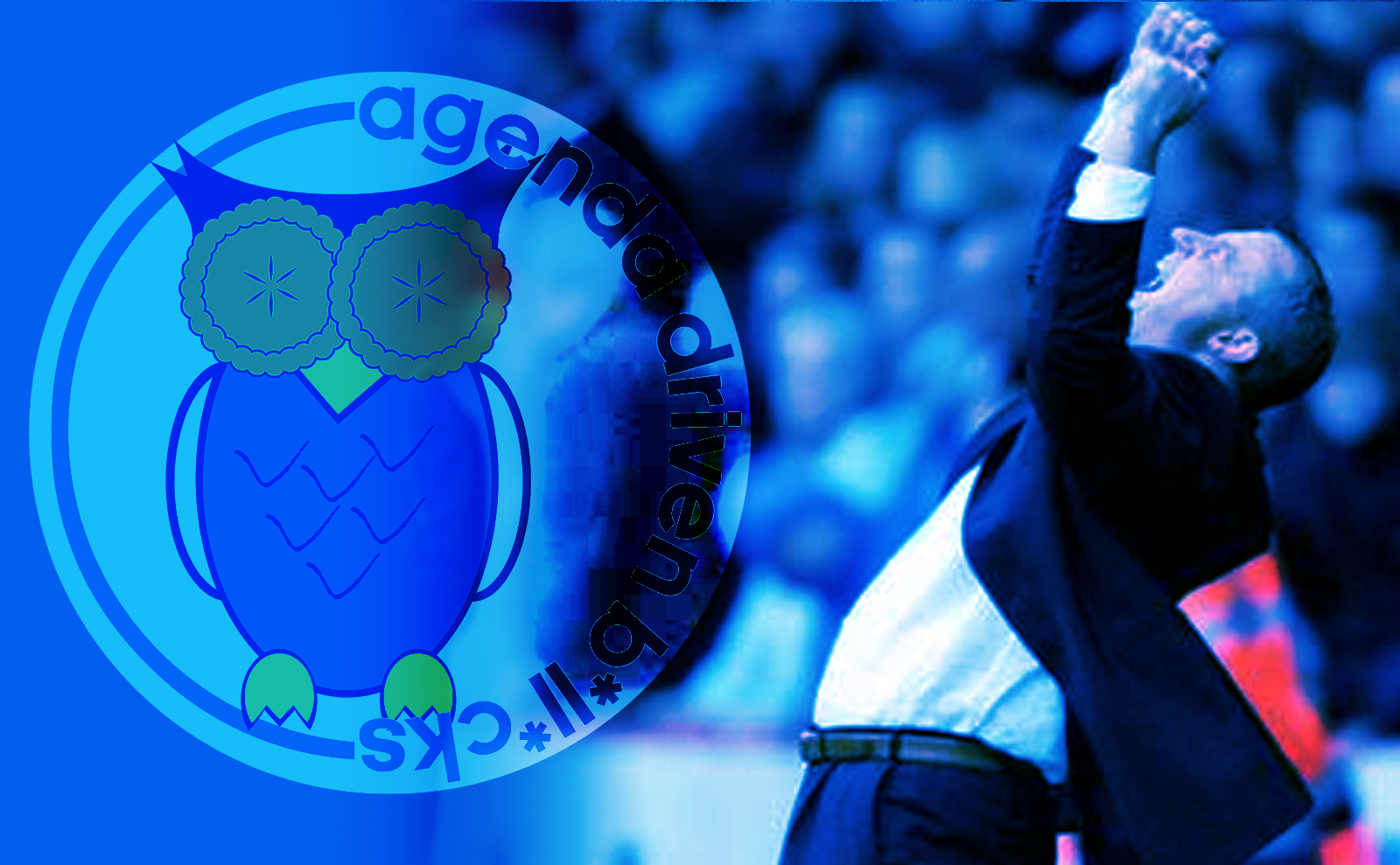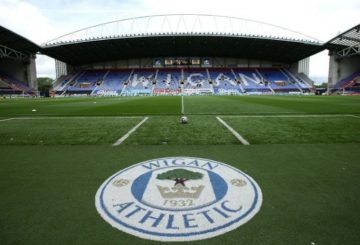Malky Mackay’s team of scrappers was once again caught short on their home ground. Watford are by no means Barcelona, but they try to play good football and deserve to be challenging for promotion. A 2-0 win for the Hornets was never a surprise to the realists among the Latics support.
It is almost exactly a year ago since Wigan Athletic beat Watford at the DW Stadium, their ninth win in ten matches. Uwe Rosler had built a side that was hard to beat, with a solid defence and flair players who could make the difference. It was not always pretty to watch, but fans were happy with the results and “In Rosler We Trust” was the order of the day.
It was results that were of paramount importance when Owen Coyle had taken over the reins in the summer of 2013. His brief was to get the club back into the Premier League by the end of the season. The Scot brought in ten new faces, a necessary thing to do after the exodus of players following relegation. His challenge was to meld together a dressing room of players who had played under Roberto Martinez and his new signings.
Coyle was never going to be an adherent to the ’tiki taka’ style of football preferred by his predecessor. However, more than half of his squad had been weaned on that approach. It was in their blood. But what was Coyle’s preferred playing style? How would the ex-Premier League players adapt to it?
Coyle was quick to revert to a traditional back four, immediately scrapping the 3-4-3 that had been the hallmark of success in the Martinez era. In his first league game in charge at Barnsley he brought in five of his new signings. There was only one player from outside the British Isles in the starting lineup – in contrast to the ‘League of Nations’ lineups that Martinez had fielded.
However, that promising start was not to be continued and Latics stuttered through the next few games. The long ball – anathema in the days of Martinez – was soon to become a feature of Wigan’s play, led by the powerful kicking of new goalkeeper Scott Carson. Players who were used to the possession game under Martinez were now expected to adapt to the more direct and physical approach of Coyle. At times the players simply appeared that they did not know what to do in the absence of a clearly-articulated footballing philosophy from the manager.
The same could not be said of Coyle’s successor, Uwe Rosler. The German talked enthusiastically about high tempo, high pressing football. It gave us visions of Latics playing the exhilarating type of football demonstrated by the likes of Borussia Dortmund. Not surprisingly the players struggled to adapt to the style of football eschewed by their new manager. They could press high up the pitch for the first twenty to thirty minutes, but invariably ran out of steam.
In the early days of Rosler’s reign it was put down to the lack of fitness of the players under Coyle. However, that high pressing early in the game was to upset many opposing teams, providing a solid platform for obtaining improved results, even if the second halves of too many matches saw Latics massed in defence.
Despite considerable success in his first season – 5th place in the league, reaching an FA Cup semifinal – Rosler could not inculcate his vision into his players. As time wore on it appeared that he and the players became more and more out of tune in terms of what should be delivered on the pitch. As the new season wore on we were to see less and less of the commitment required for the high tempo, high pressing football he sought.
By November the dream of getting back into the Premier League had become almost unreal. It looked like it was not going to happen this season with Rosler. Dave Whelan stepped in, relieving the German of his job, bringing in Malky Mackay, stating his belief that the Scot was the right man to take the club back to the Premier League.
The harsh reality is that Mackay is taking Latics to League 1, rather than the Premier League.
During his tenure results have been awful, but the style of play has been even worse. Jettisoning thirteen players in a January fire-sale was clearly a collective decision, not taken by Mackay alone. David Sharpe must shoulder responsibility for this action, as too should Jonathan Jackson. The end result is a squad desperately short on quality compared with that of a year ago. Moreover the style of play is more akin to that of the club’s time in the Cheshire League than what we have been accustomed to over the past decade.
That the majority of fans are not demonstrating for the removal of Mackay is a reflection of the numbness that so many feel. His supporters – few as they may be – will say that he has got the players playing with the kind of passion that was lacking this season under Rosler. The fire sale and the threat of League 1 left him with little option but to sign loanees and players on short term contracts. He has been left to mop up the mess left behind by Rosler. Even the anti-Mackay brigade will grudgingly accept that there is some substance to such assertions.
However, how many fans have the confidence that Mackay can turn things around, given time? His management experience is at Championship level, together with a brief sojourn in the Premier League. The high probability is that Wigan Athletic are going to be in League 1 next year. Is he the right man to get them back out?
Mackay’s appointment was ill-fated to say the least. It has caused seemingly irreparable damage to the club. However, despite the media fracas it looked like Latics had appointed someone who could steady a sinking ship on the filed of play. He had successfully worked under pressure of relegation at Watford and taken Cardiff to the Championship title. On paper he looked the right kind of person to get the results to put the team back on track.
However, during Mackay’s reign we have seen the standard of football plummet to close to rock-bottom. The passing style of football that we have seen over the years has disappeared, with “hoof ball” coming to the fore. It could be said that teams in the relegation zone so often need to sacrifice good football to grind out results. The recent run of four consecutive away wins has been attained by following such a pattern. However, when the team plays at home it does not have the wherewithal to break down the opponent’s defence. The skliful approach is sadly lacking.
Mackay’s teams at Watford and Cardiff were not noted for their good football. The sad conclusion is that as long as Mackay continues at Wigan we are not going to see the type of dynamic football we saw from Paul Jewell’s teams or the skilful possession football under Roberto Martinez.
Mackay will almost certainly be in charge until the end of the season. It remains to be seen how much longer he will be at the club.
The brand of football that Watford are playing at the moment is close to what last season’s Wigan Athletic team were capable of at their best. With Mackay at the helm we are not going to see that from the home team at the DW Stadium.
Through the effects of relegation from the Premier League and some poor managerial appointments we have witnessed the demise of good football at our beloved club.
Let’s hope the young chairman, David Sharpe, will have the foresight to make the kinds of decisions to bring it back.
Thanks to JJ of http://threeamigoswigan.com/ for this post.
SUBSCRIBE TO THE PIE AT NIGHT PODCAST
We promise you that it’s easier to subscribe to the podcast so you don’t have to rely on us to remind you when a new episode comes out.
Apple sorts can find it on iTunes here – https://itunes.apple.com/gb/podcast/the-pie-at-night-podcast/id1097853442?mt=2
If you prefer a different podcast app then just search for “The Pie at Night Podcast”.
You can also find us on Stitcher, here – http://www.stitcher.com/podcast/the-pie-at-night-pocast/the-pie-at-night-podcast
If you’re that way out, you can find and subscribe to our RSS feed here – http://feeds.feedburner.com/thepieatnight
And if you just want to take pot luck then you can find all our episodes on our Soundcloud page



